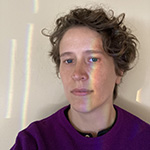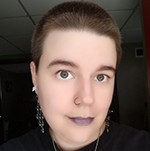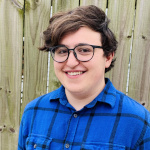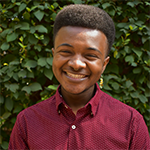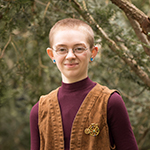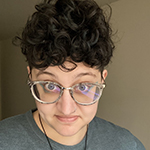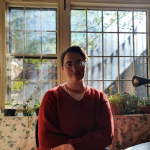First Love in Moon Park
In a drunken daze words pour from my mouth of their beauty
of their gorgestness as the world’s rotation counters my own
spin on the dance floor and I am trying to write
of love because I know now that it exists
Planetarium shows us among the stars and our newest
journeys through telescopes and it’s silly how we look
up into space to compare it to home Pillars of Creation
are elephant trunks or desert rocks but made of cosmos
Me and my love are made of stardust too we change
our silhouettes by our own command and
leave people wondering in awe of the constellations
of stories we write for our own bodies
I pour out my heart knowing they will live
because of the stars and because of my writings
Reyna Rosales is a Queer & Trans Filipinx writer born in the Philippines and raised in Los Angeles. Their work has appeared recently in Rituals from Marías at Sampaguitas and elsewhere. You can find her @tsismosx.

 BACK TO ISSUE
BACK TO ISSUE